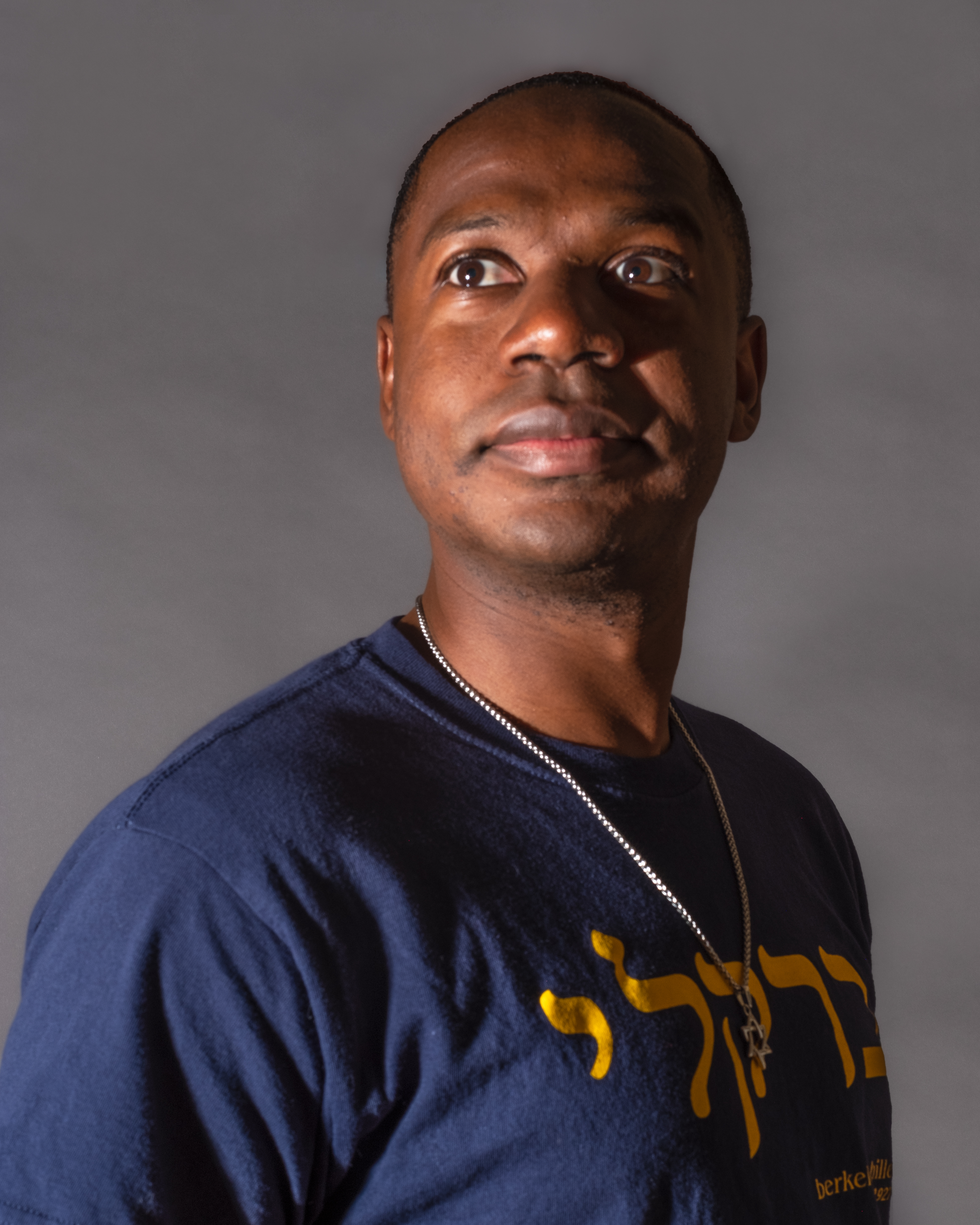Tongai David Makoni (he/him)

Title: Grad Student
“Judaism has played a really massive role for me. It has helped shape me in terms of who I am, life’s questions, learning, community, and friendship. It’s part of who I am; it’s central. It’s hard to say what role it has played because it is just me and mine.
I talk about Judaism a lot. I like to connect with other Jews. I want to showcase the diversity of the Jewish people, and I feel like I really enjoy taking part in that space and just being able to share. I remember in one of my classes; we were giving a communication speech. And my subject was the diversity of the Jewish community. I asked people, close your eyes, picture a Jewish person, and what do you see? And you know, it’s like what we see on TV, but then being able to share those other stories. In the international house, I share Jewish foods, Jewish traditions, Jewish holidays, and learning. It’s really fun. And you see in people’s eyes like, Oh, I didn’t know about this, and it’s pretty amazing.
I think in the US it’s interesting because I’m Black and Jewish. There are always certain things that I have to be aware of. Issues like racism, antisemitism, and then sometimes when it seems as if Black and Jewish are separate, and then being in the middle, it can be challenging. But I embrace my identities, and I share my own experiences with people. Sometimes it goes back to these people not knowing, and a lot of things can be lost in translation, so when I’m engaging in a conversation about race or anti-Semitism, I can offer a different perspective just by being able to share and be a voice in that space. So sometimes it’s a learning experience where I tell my story, but sometimes it can be frustrating too. And for me, I just see myself as both (Black and Jewish). I don’t separate all these parts, and they just work in tandem. I also always like to find specific commonalities between my identities. Like I love Nissim Black, the black Hasidic orthodox rapper. And then also, in terms of praying, there are a lot of African traditions of being very expressive. So like, if I go to shul, there is expressiveness when people are davening. So I just find a way to, like, blend different cultures together and just find my own way of practicing.
And I think at the end of the day, you just have to know in your mind that you are who you are and you deserve to be in those Jewish places, and you shouldn’t let other people’s opinions or reactions affect you.”
